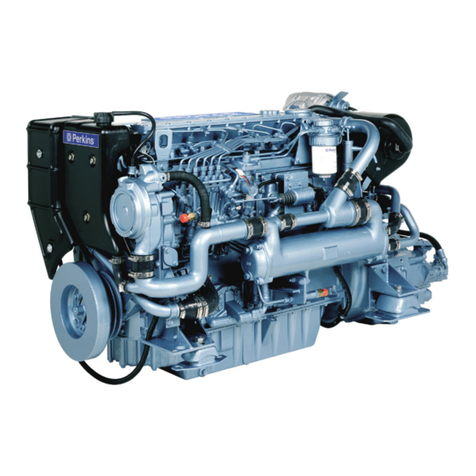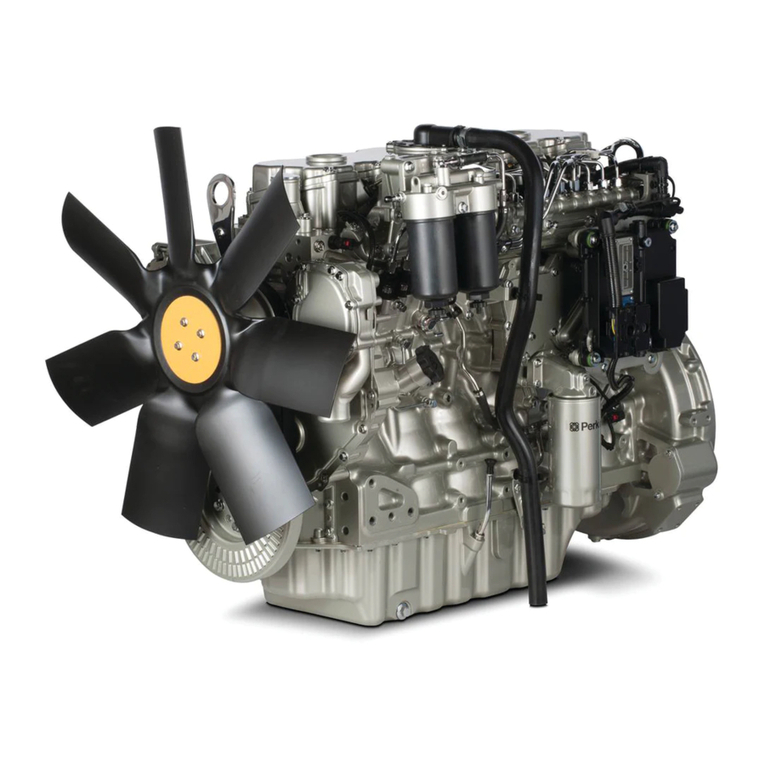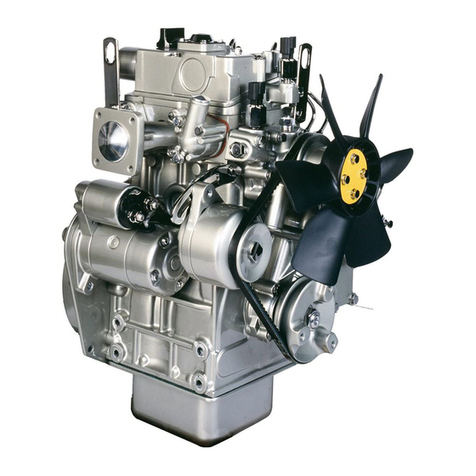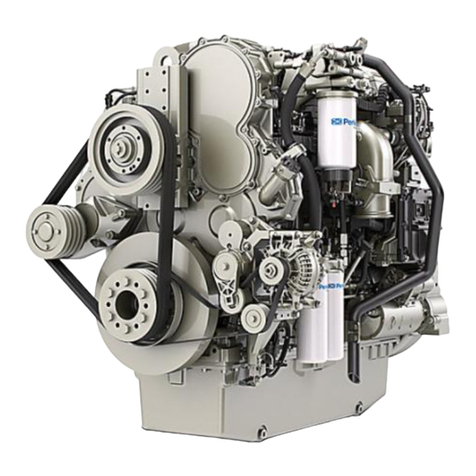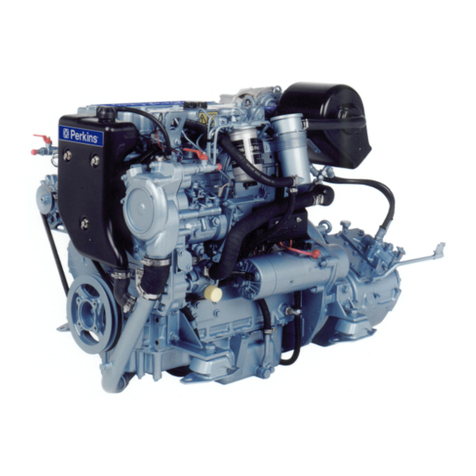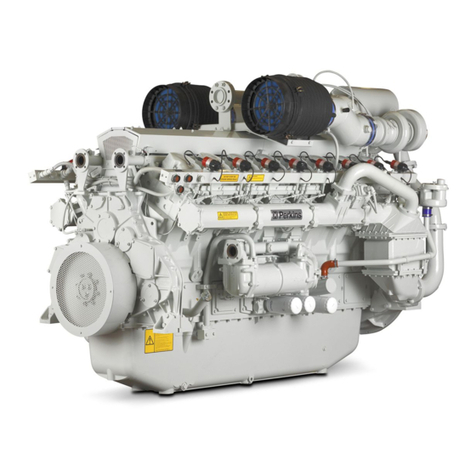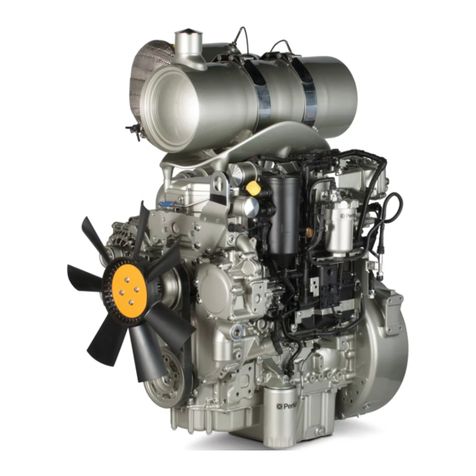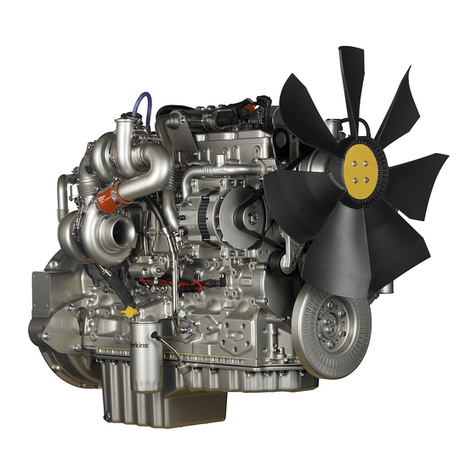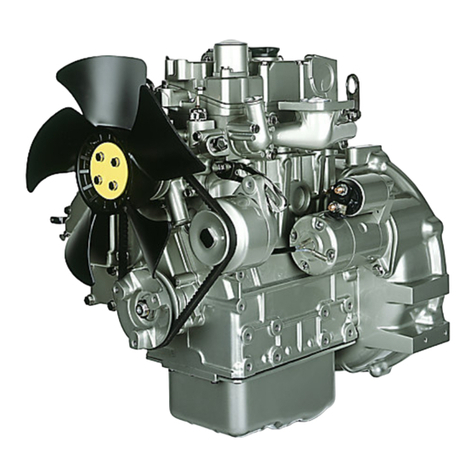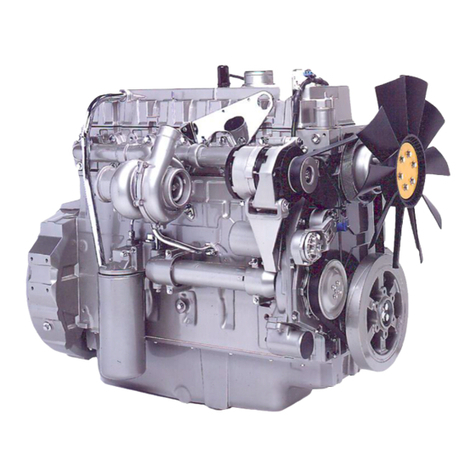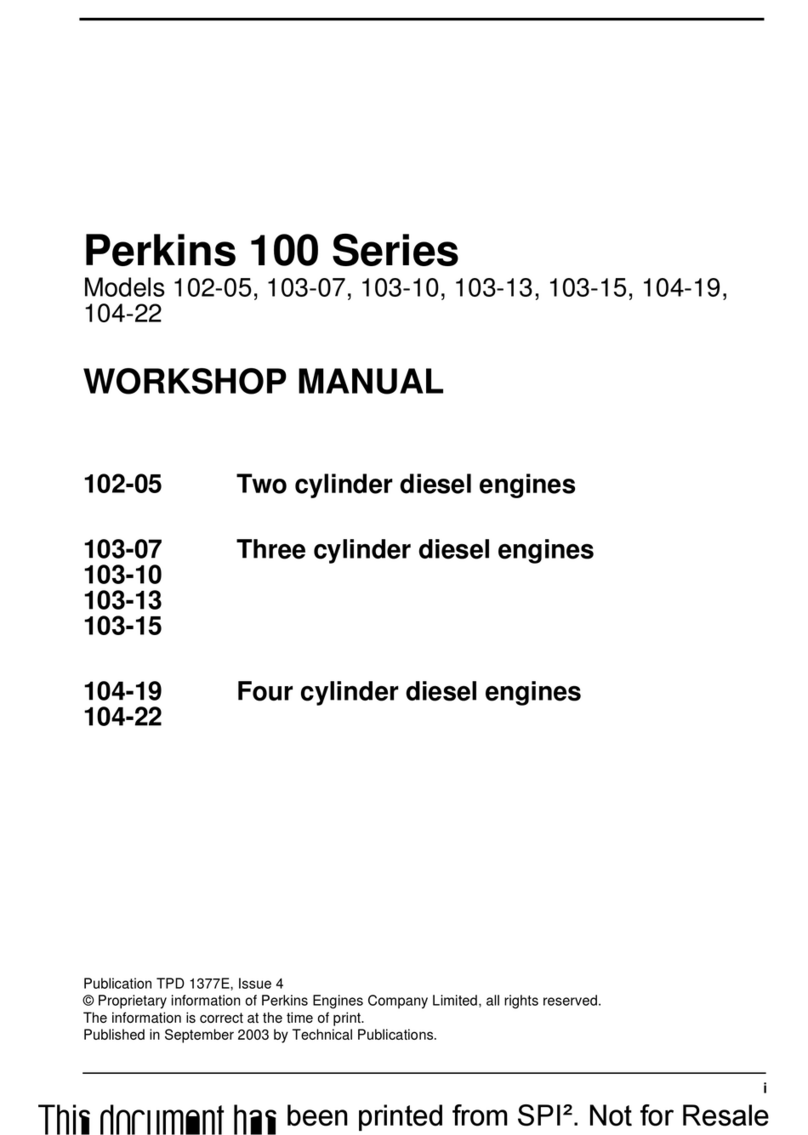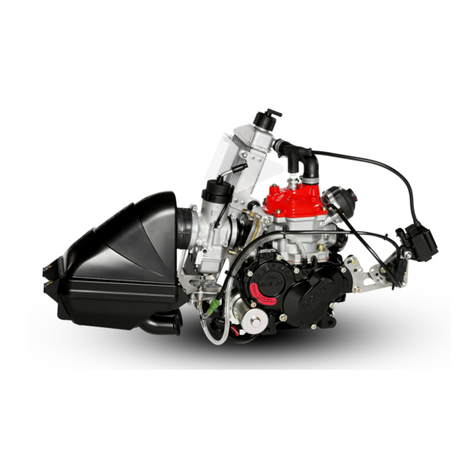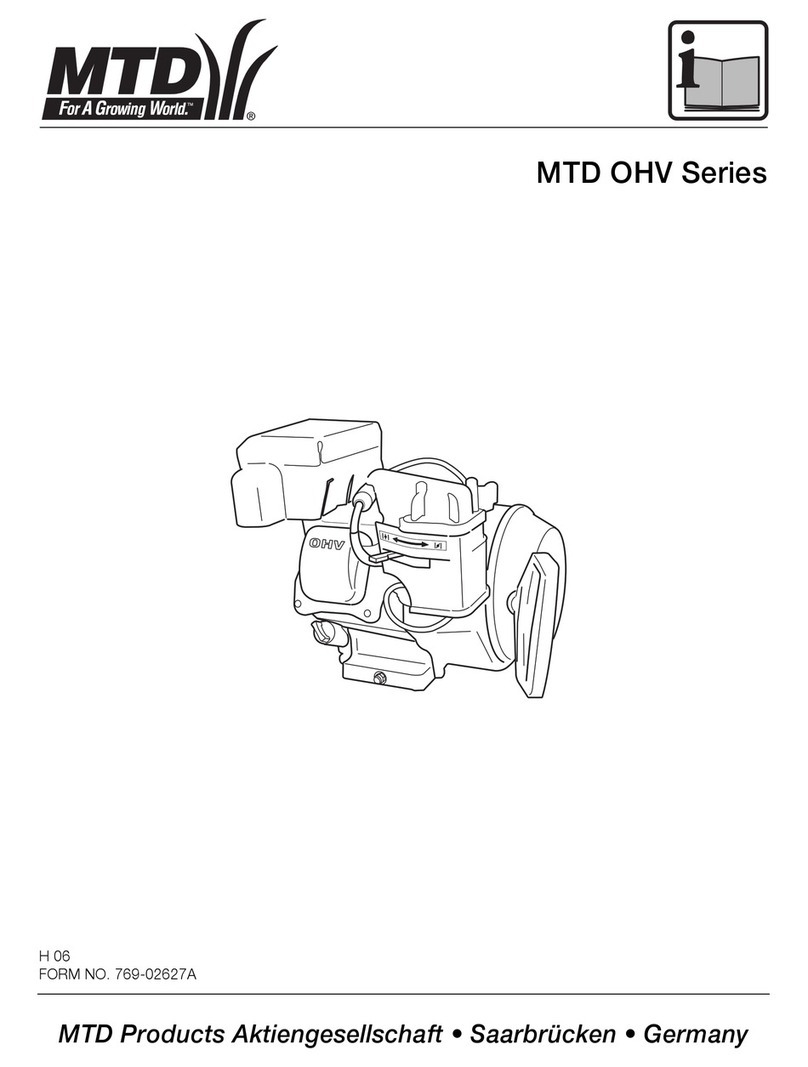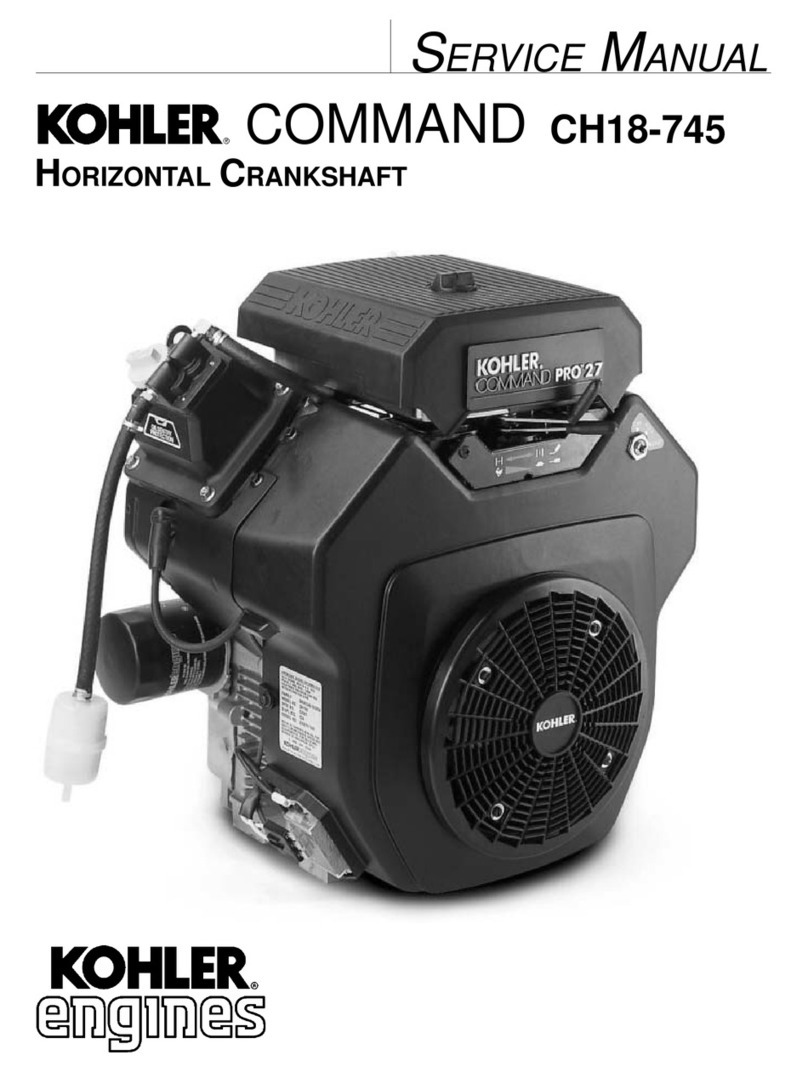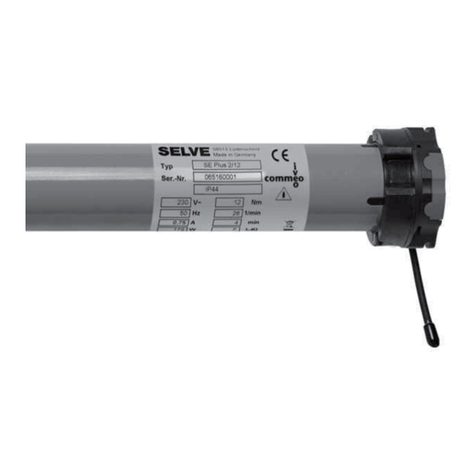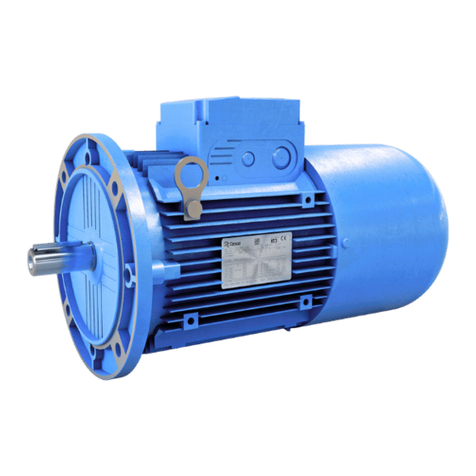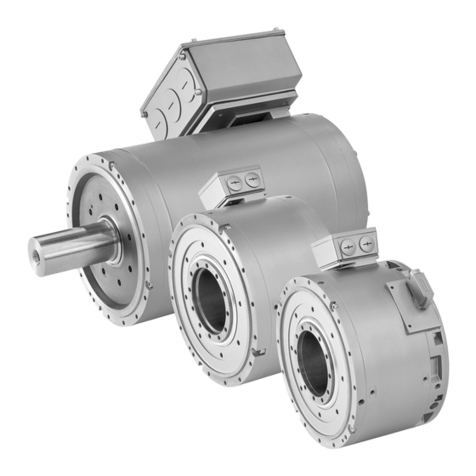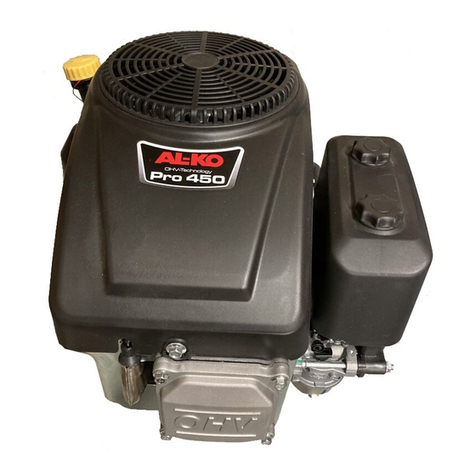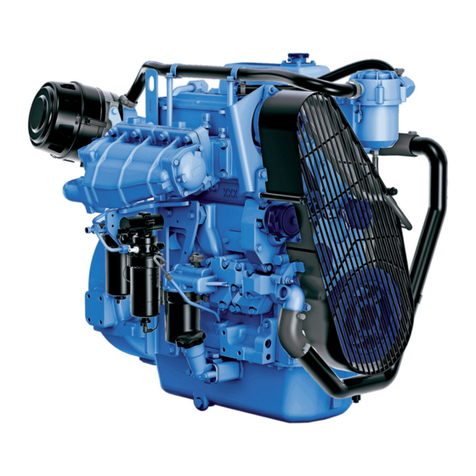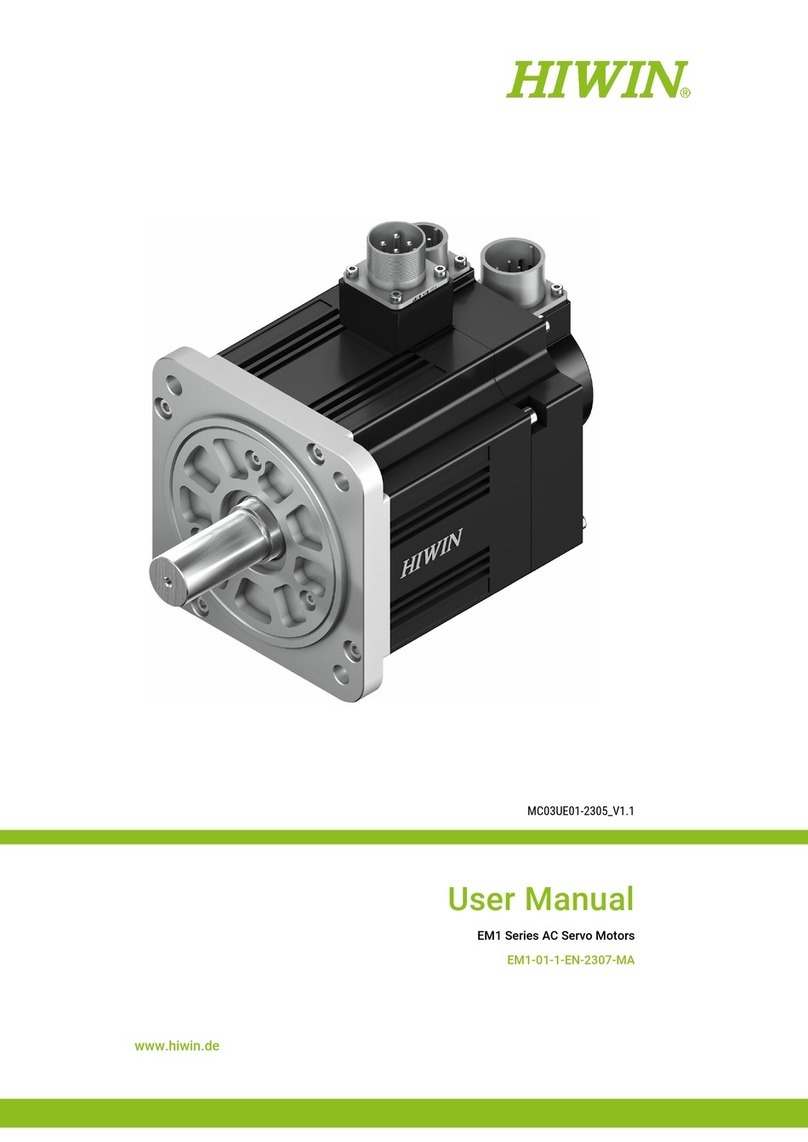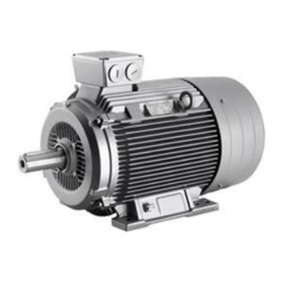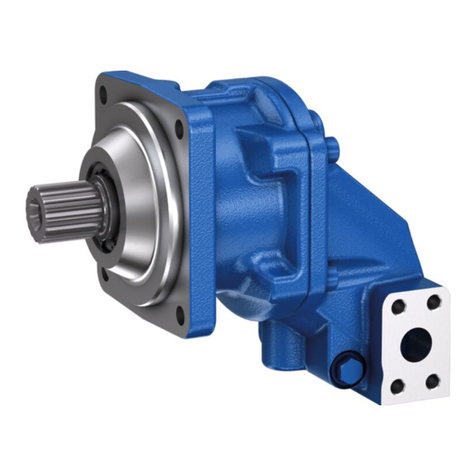
iv Workshop Manual TPD 1458E, issue 3 - Perkins Confidential: Green
400 Series
Operation 3-3 To dismantle and to assemble .. ... ... ... ... ... ... ... ... ... ... ... ... ... ... ... ... ... ... ... 15
Operation 3-4 To inspect ... ... ... ... ... ... ... ... ... ... ... ... ... ... ... ... ... ... ... ... ... ... ... ... ... ... ... ... ... 16
Exhaust manifold and gasket
Operation 3-5 To remove and to fit .. ... ... ... ... ... ... ... ... ... ... ... ... ... ... ... ... ... ... ... ... ... ... ... ... 17
Fuel injection pipes / fuel return pipes
Operation 3-6 To remove and to fit .. ... ... ... ... ... ... ... ... ... ... ... ... ... ... ... ... ... ... ... ... ... ... ... ... 18
Cylinder head setscrews
Operation 3-7 To remove and to fit .. ... ... ... ... ... ... ... ... ... ... ... ... ... ... ... ... ... ... ... ... ... ... ... ... 19
Cylinder head
Operation 3-8 Tightening sequence 403C-11 and 403C-15 . ... ... ... ... ... ... ... ... ... ... ... ... ... 20
Operation 3-9 Tightening sequence 404C-22 and 404C-22T .. ... ... ... ... ... ... ... ... ... ... ... ... 21
Cylinder head gasket
Operation 3-10 To remove and to fit ... ... ... ... ... ... ... ... ... ... ... ... ... ... ... ... ... ... ... ... ... ... ... ... 22
Operation 3-11 To select the correct thickness of cylinder head gasket .. ... ... ... ... ... ... ... 23
Valve and valve spring
Operation 3-12 To remove and to fit ... ... ... ... ... ... ... ... ... ... ... ... ... ... ... ... ... ... ... ... ... ... ... ... 24
Operation 3-13 To inspect - valve spring ... ... ... ... ... ... ... ... ... ... ... ... ... ... ... ... ... ... ... ... ... ... 25
Operation 3-14 To inspect - valve stem and thickness of valve head ... ... ... ... ... ... ... ... ... 26
Cylinder head to valve stem clearance
Operation 3-15 To inspect . ... ... ... ... ... ... ... ... ... ... ... ... ... ... ... ... ... ... ... ... ... ... ... ... ... ... ... ... 27
Cylinder head
Operation 3-16 To inspect . ... ... ... ... ... ... ... ... ... ... ... ... ... ... ... ... ... ... ... ... ... ... ... ... ... ... ... ... 28
Valve seat width
Operation 3-17 To inspect and to correct ... ... ... ... ... ... ... ... ... ... ... ... ... ... ... ... ... ... ... ... ... ... 29
Valve depth
Operation 3-18 To check . ... ... ... ... ... ... ... ... ... ... ... ... ... ... ... ... ... ... ... ... ... ... ... ... ... ... ... ... ... 30
Operation 3-19 To lap the contact face of the valve seat . ... ... ... ... ... ... ... ... ... ... ... ... ... ... 31
Valve tip clearance
Operation 3-20 To check and to adjust ... ... ... ... ... ... ... ... ... ... ... ... ... ... ... ... ... ... ... ... ... ... ... 32
